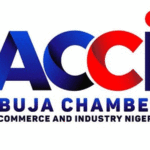Unsuccessful attempts have been made over the decades by successive Nigerian administrations to diversify the nation’s economy from the oil sector.
But it’s instructive to submit that the efforts made so far have not been strategic, deliberate and profound enough as they have yielded no notable and significant results.
Indeed, more of those moves have ended in the realm of policy formulation, with scant regard for their implementation.
Of course, it’s a stark reality that Nigeria largely remains a mono-cultural economy.
FG budgets N33.1bn for railway projects
ACCI tasks FG on ease of doing business, gets new president
This is the huge challenge a country with a population of about 250 million people has been battling with for decades.
It’s indeed incredible how Nigeria and its people have been surviving this obvious challenge. This huge population is hanging only onto oil revenue over the last 5 decades for survival! It’s simply unfathomable!
The above reality is the main reason why Nigeria and its people are continually under stress.
The nation’s economy is seriously troubled, with the continuous worsening position of domestic currency and very disturbing state of the foreign reserves account.
Infrastructure facilities across the nation are suffering for lack of adequate funds for their rehabilitation and reconstruction.
Educational standard is pitiably on the decline consequent upon the inadequate funding to ensure that the sector rubs shoulders with its counterparts across the globe.
It’s a reality that the nation’s health facilities are fast deteriorating, with the collapse of medical infrastructure across the country, and more importantly, with medical personnel relocating abroad for greener pastures.
The government just does not seem to have the wherewithal to ensure that the services of Nigerian medical personnel within the country are retained.
It’s an understatement to submit that for many years life expectancy in Nigeria has significantly dropped following huge challenges in the medical sector.
The obvious disappointment being encountered through continual stagnation in the solid minerals, agricultural and digital economy sectors provided enough justification for Asiwaju Bola Tinubu to make economic diversification the fulcrum of his seven-point agenda while canvassing for votes of Nigerians in all the nooks and crannies before the recently concluded presidential election.
And after his inauguration, Tinubu resolved to walk the talk by identifying egg heads in the persons of Dele Alake, an experienced and accomplished public administrator, as well as a vibrant resourceful IT savvy and very adventurous Bosun Tijani, as ministers in charge of solid minerals development and digital and communications respectively.
And from what is coming from the stables of the two ministers, it appears there would be light at the end of the tunnel.
In them, the president might have made perfect fits for the two ministries.
The ministers have rolled out their strategic initiatives and plans in pragmatic terms good enough to unearth the hidden treasures in both sectors.
This writer is of the conviction that with their laid out plans already in the public domain, with a view to igniting and re-energising the operational activities in the two ministries, it may not be too long for the sectors to start contributing significantly to FAAC, and more importantly, competing on the same pedestal with the oil sector.
For emphasis, Nigeria has deposits of more than 44 minerals spread across the country and in commercial quantities too. But for strategic reasons, only seven are being prioritised for exploitation on the basis of data availability, as well as economic viability. The seven minerals in the priority list are gold, barite, iron ore, lead/zinc, coal, limestone and bitumen.
This, however, doesn’t indicate that the other 37 minerals resources are not being exploited and mined. But largely, the revenue being accrued therefrom are simply being diverted into the private coffers of the traditional rulers, members of the political class and illegal foreign miners being aided by security agencies.
Presently, there is a gold deposit of about 757,000oz, valued at $1.4bn based on the average market price.
Nigeria’s barite deposit reserve of over 21 million metric tonnes is the fourth in the world.
Iron ore reserve of about 3 billion metric tonnes in our country is the sixth largest in the globe.
There is an estimated 10 million tonnes of lead/zinc spread in more than eight states across Nigeria.
Proven coal reserves of about 639 million metric tonnes, as well as inferred reserves of more than 2.75 billion metric tonnes, are presently under Nigerian soil.
There is deposit of 10.6 billion tonnes of limestone spread across the 14 states of Sokoto, Gombe, Benue, Kogi, Edo, Oyo, Ogun, Cross River, Ondo, Plateau, Bauchi, Akwa Ibom, Enugu and Ebonyi.
Well-stocked in Nigerian earth is a proven reserve of 42.47 billion tonnes of bitumen, a quantity estimated to be the second in the world.
How else could nature help a country!
With the humongous figures above, it’s crystal clear that the solid mineral sector has not lived up to its potential. But, I’m of the strong conviction that the nation has the capacity to emerge from this rubble and despondence to hug greatness. It’s in our hands!
Kola Amzat wrote from Lagos.

 Join Daily Trust WhatsApp Community For Quick Access To News and Happenings Around You.
Join Daily Trust WhatsApp Community For Quick Access To News and Happenings Around You.



